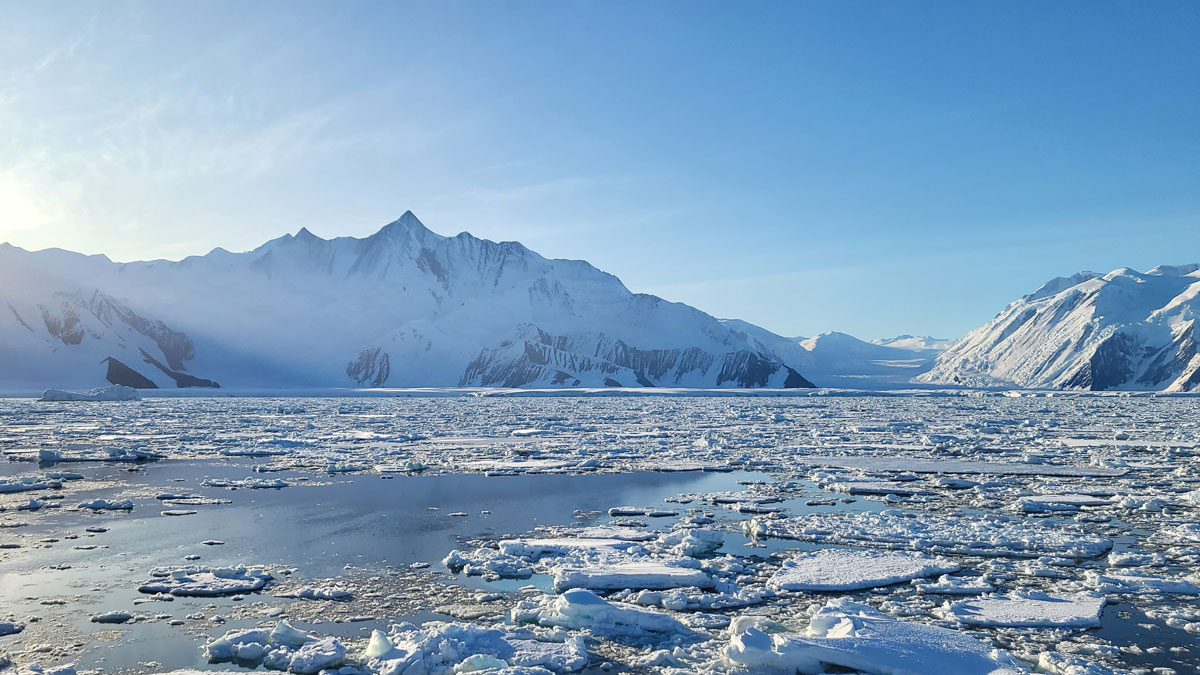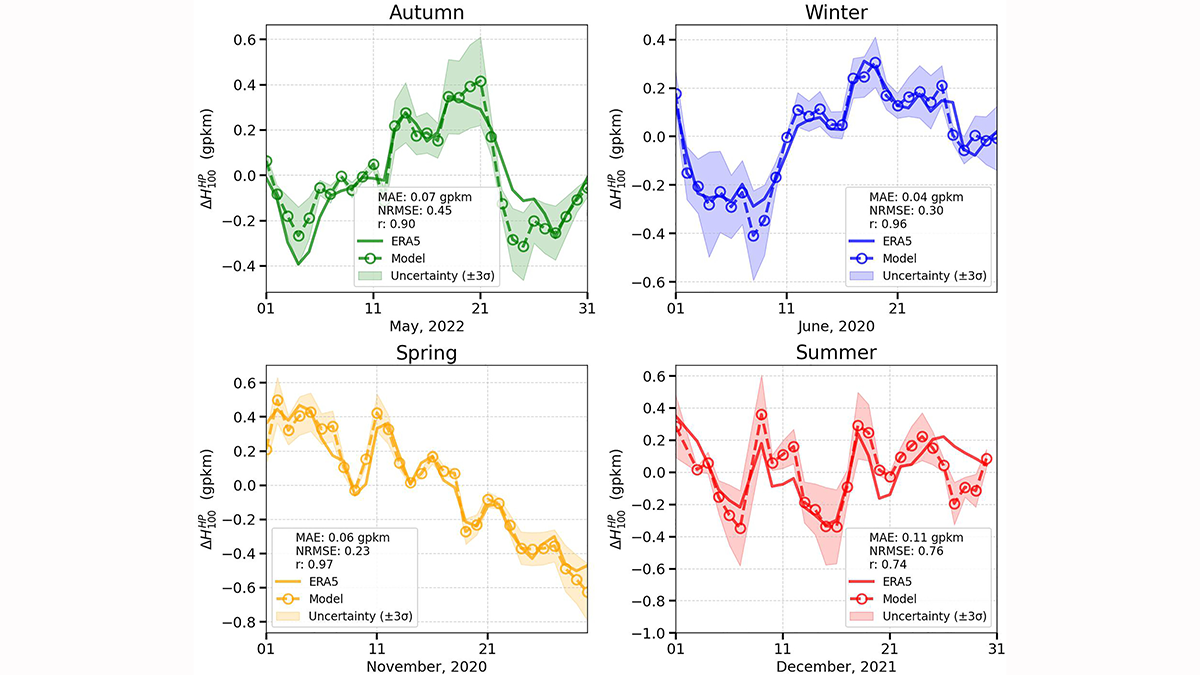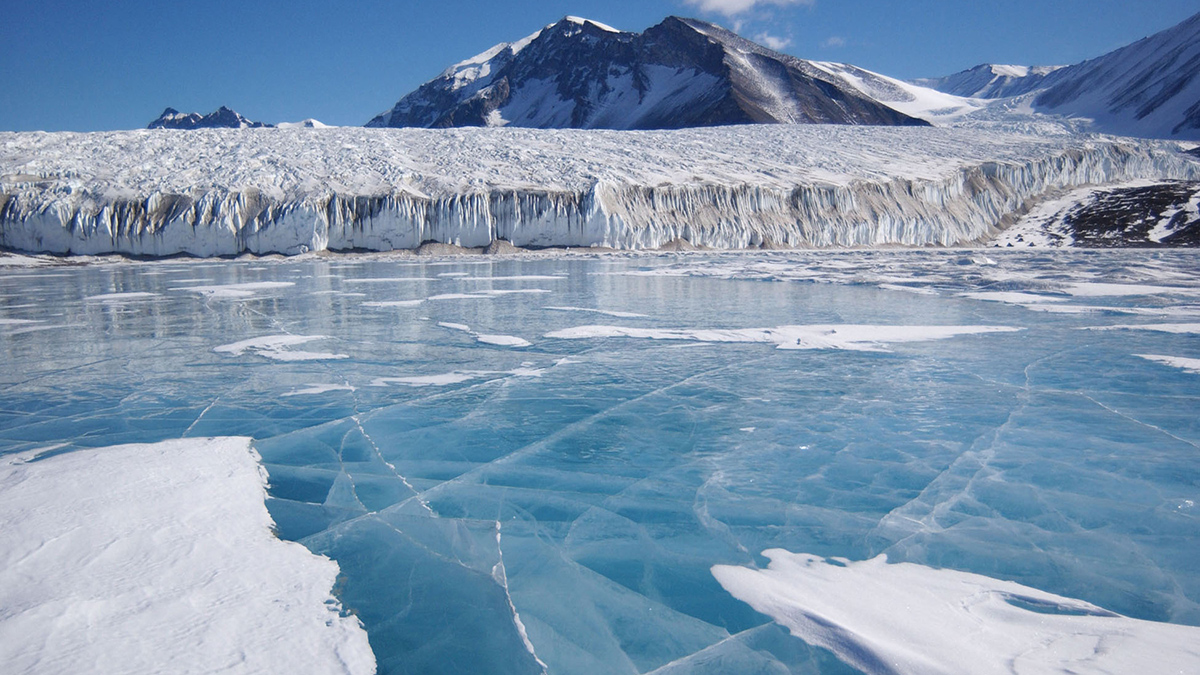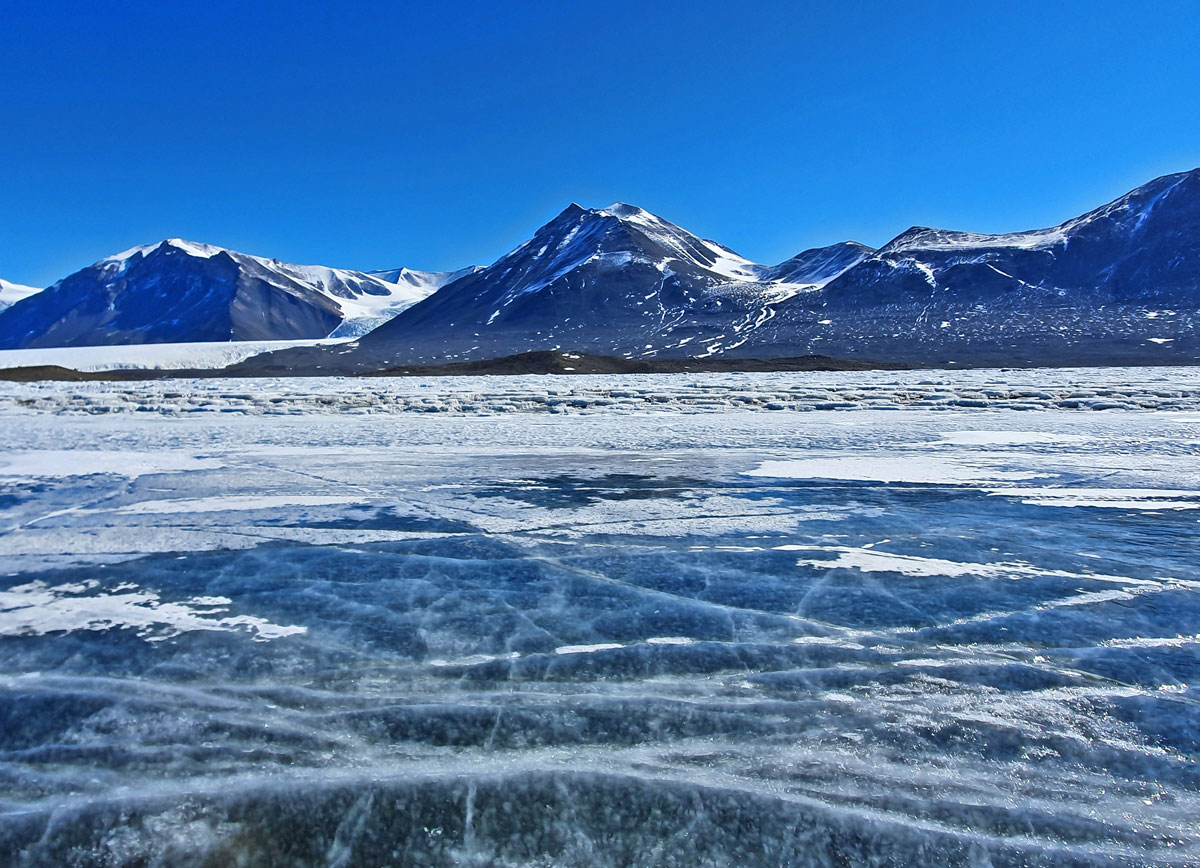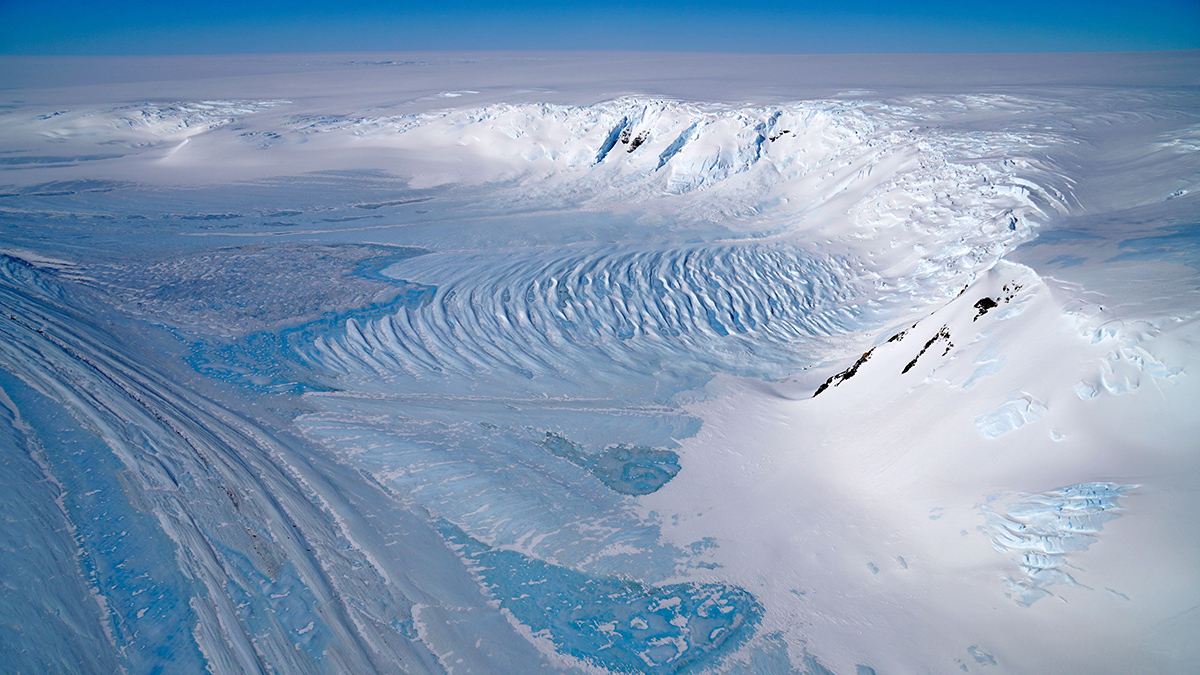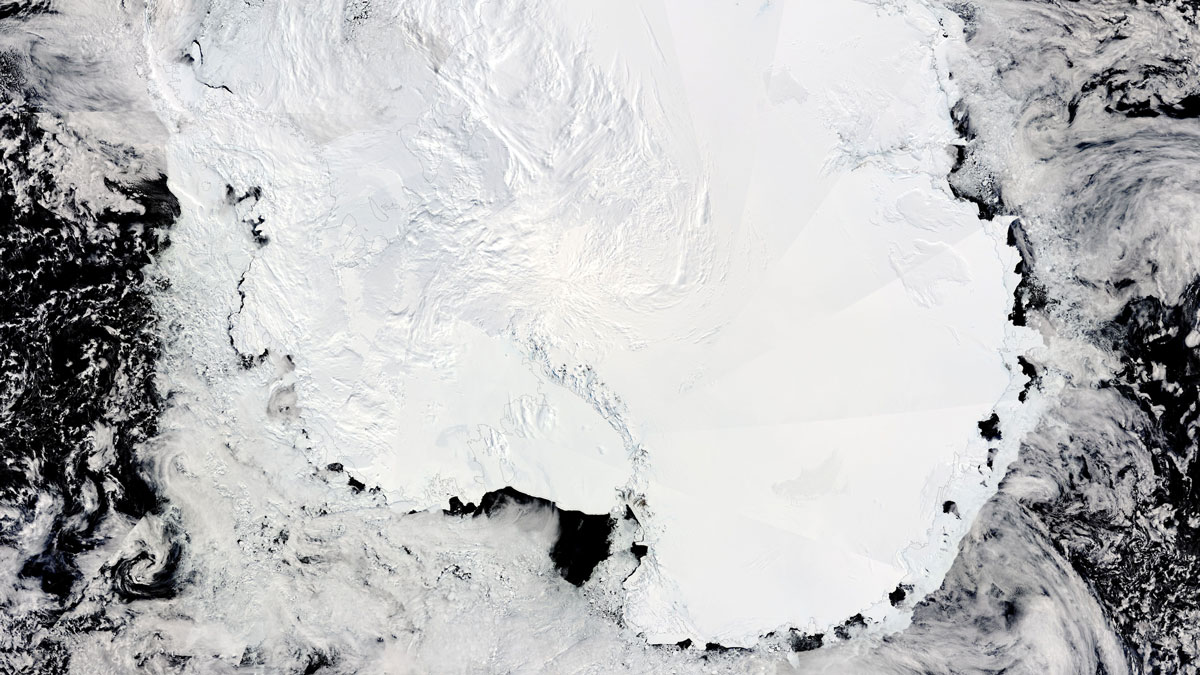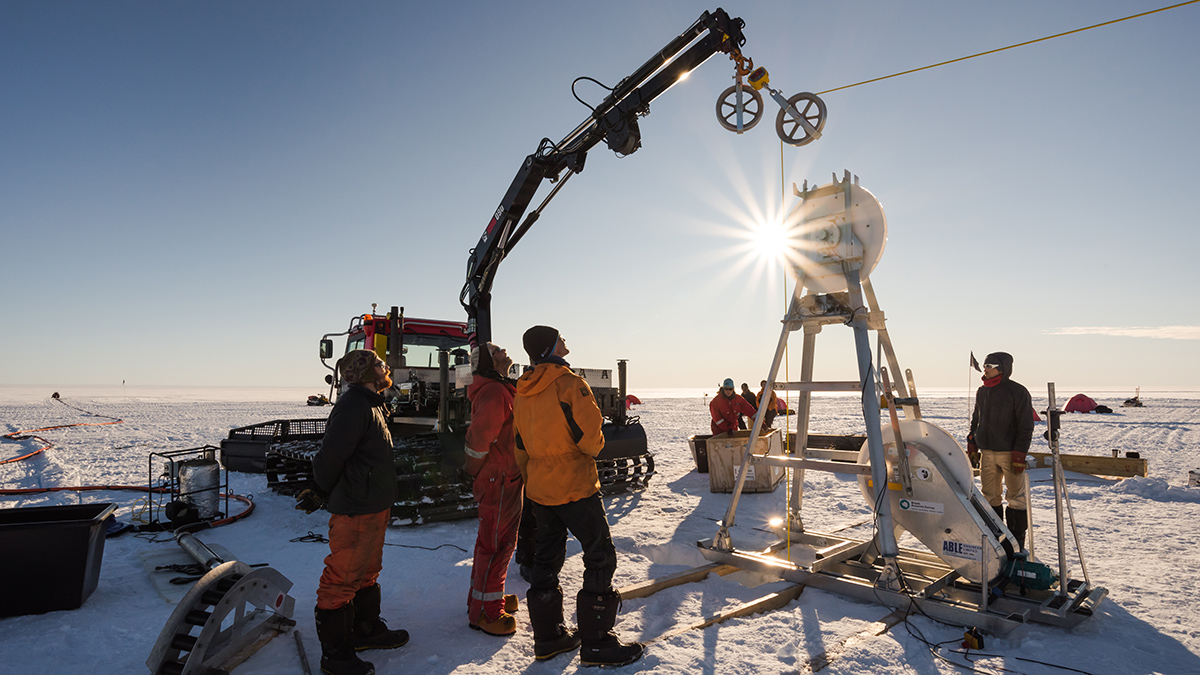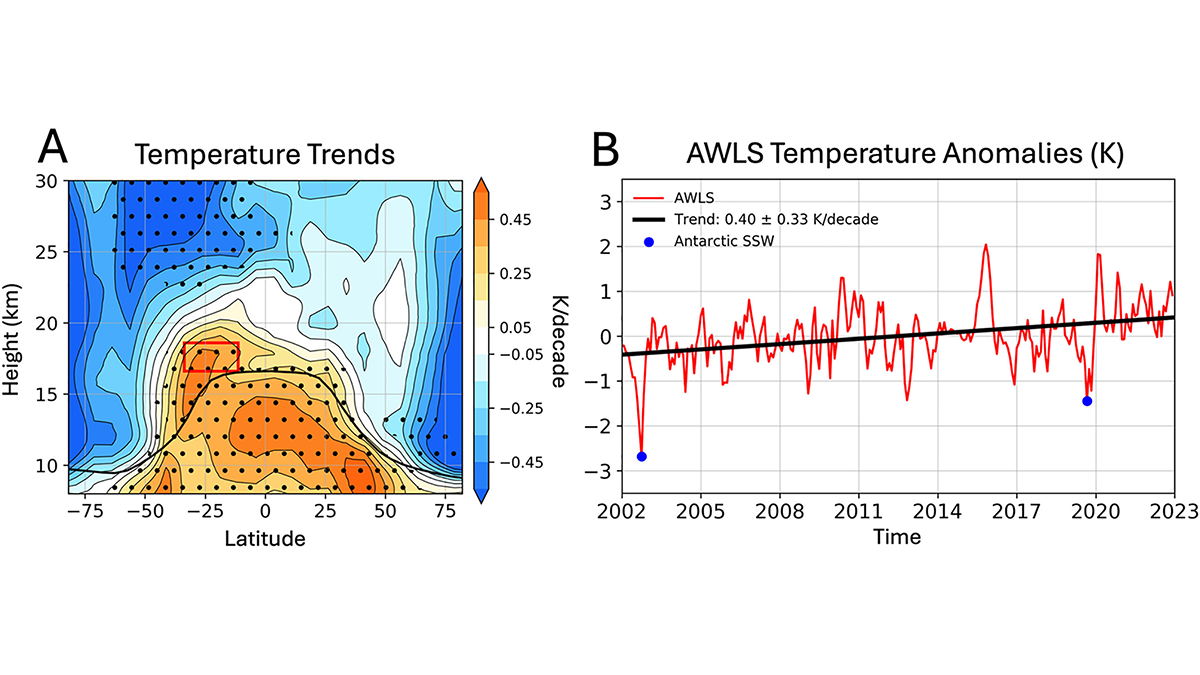Scientists used sediments to create a millennia-long archive of Antarctic fast ice. Along the way, they discovered that the freezing and thawing of this enigmatic ice appear to be linked to solar cycles.
Antarctica
Linking Space Weather and Atmospheric Changes With Cosmic Rays
Water-Cherenkov cosmic-ray detectors can be used as a tool for monitoring and studying changes in the lower stratosphere over Antarctica.
Snowball Earth’s Liquid Seas Dipped Way Below Freezing
Iron isotopes show that salty seawater pockets beneath the ice were as cold as −15°C.
The Land Beneath Antarctica’s Ice Might Be Full of Water
Seismic surveys hint at the extent of a potential groundwater system in the White Continent.
New Lessons from Old Ice: How We Understand Past (and Future) Heating
Fragments of blue ice up to 6 million years old—the oldest ever found—offer key insights into Earth’s warming cycles. Researchers are using these ancient data to refine models of our future climate.
Satellite Data Reveal Changing Lakes Under Antarctic Ice
Radar altimetry observations have pinpointed 85 active subglacial lakes, shedding light on how water moves beneath the Antarctic Ice Sheet.
Mysteriously Bright Waters near Antarctica Explained
Shiny-shelled diatoms make a remote part of the Southern Ocean appear especially reflective in satellite imagery.
Strong Tides Speed Melting of Antarctic Ice Shelves
Ocean currents along the underside of the ice are a major control over melting.
Southern Hemisphere Subtropical Lower Stratosphere is Warming
Warming of the Southern Hemisphere (SH) subtropical lower stratosphere is due to slowing of Brewer-Dobson Circulation, thus cooling the Antarctic lower stratosphere and masking anticipated ozone recovery.

